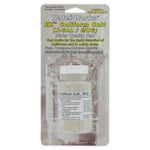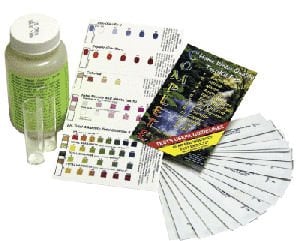Late last week residents in a Massachusetts community outside of Boston received word that water samples from two of the town’s wells tested positive for the presence of bacteria (enterococci bacteria). Accordingly, health officials advised residents to not use their tap water without boiling it first.
Boiling the water before using it for cooking, drinking, washing, brushing one’s teeth, etc. would effectively kill off any bacteria potentially present.
as a general rule, health officials view the presence of enterococci bacteria as a sign that the water may have become contaminated with fecal matter and that, friends, could definitely make more than a few people sick.
For anyone with a compromised or otherwise suppressed immune system, ingesting water containing fecal matter could mean death.
No matter how you look at it, though, the very idea of drinking human or animal waste sounds… absolutely revolting.
The Town of Marshfield has ordered residents to boil their water before using it, after tests of water samples from two test wells found a high level of enterococci bacteria. Enterococci bacteria is an indicator of the possible presence of fecal matter, and when it is found in drinking water it poses a serious health risk.
The well sites on Spring Street and Church Street, two of six wells in the towns hi-zone water system, had high levels of the bacteria, according to results returned Thursday night.
Residents are being instructed to bring water to a rolling boil before drinking and cooking, or before brushing teeth, bathing, or washing their face. ( source )
Far too many people trust in modern technology these days and forget one of the most basic facts in the Known Universe: “Sh#t happens.”
Machines can break, valves can fail and unexpected leaks can occur. When any of those things happen, some of the bacteria from the sh#t that unavoidably happens has an opportunity to get into your water supply.
Who should test for bacteria in drinking water?
In most cases people with city water do not need to test for bacteria in their water, but an occasional test just to make certain nothing has gone wrong with the pipes between the water treatment facility and their homes never hurts.
For people who private wells, the odds of bacteria infiltrating their wells go way, way up. Therefore experts suggest a regimen of periodic testing for coliform bacteria to anyone who owns a private well.
Trained water experts perform daily testing of city water but no one will test your well water if you don’t.






